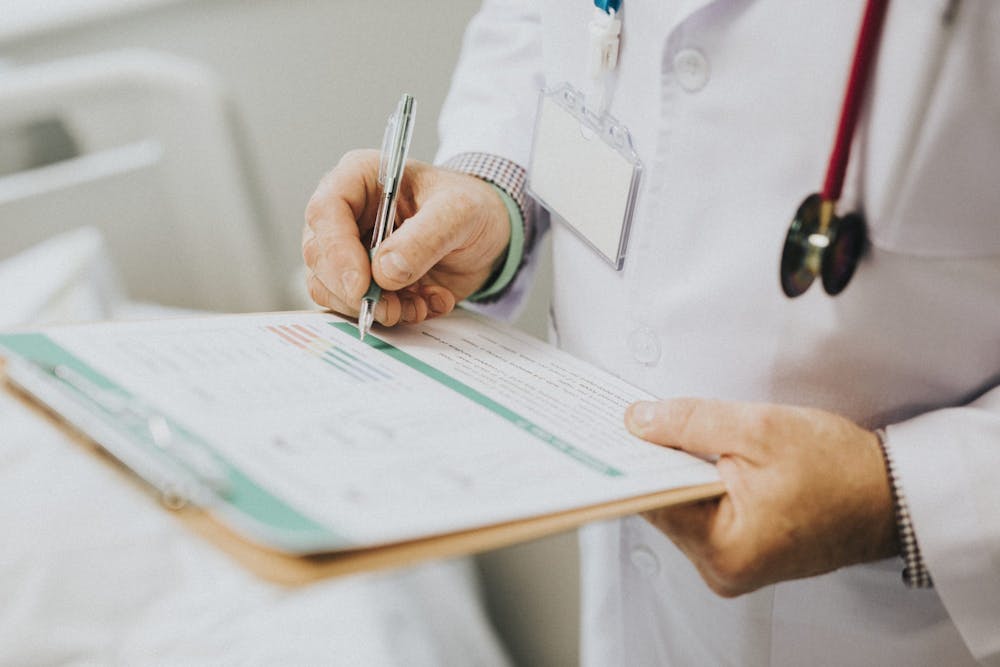As many other U.S. schools did amid the coronavirus (COVID-19) pandemic, the Hopkins School of Medicine pulled medical students from both their classes and clinical rotations around mid-March.
“We were all looking forward to a spring of celebration, and a lot of that excitement is gone,” Tym Kajstura, a fourth-year medical student, wrote in an email to The News-Letter.
For students like Kajstura who expected to graduate this year, celebration instead gave way to uncertainty and frustration.
“We had a lot of questions and uncertainty early on about what our role in the pandemic would be,” Kajstura wrote. “Would we graduate early like some schools in NY or MA? Would there be some kind of advanced clerkship? Would our internships start earlier?”
Medical schools located in hotspots for the virus such as New York made the decision to graduate fourth-year students early and offered graduates temporary employment in order to receive their help with the consequences of the pandemic. Maryland has not faced the surge in hospitals faced by other states to warrant the risk of pulling in the graduates.
“In some ways it’s frustrating having finished medical school and being unable to help clinically, but I’m grateful it never got to the point that it was necessary to pull us in,” Kajstura wrote.
However, students have found other ways to help during the pandemic. For example, Lukas Mees, who is a third-year medical student, helped to address a critical lack of personal protection equipment (PPE) and medical supplies. In order to handle the shortage, students have sewn masks, driven supplies between hospitals and constructed face shields.
“PPE shortages are affecting healthcare workers worldwide. As a medical student, this is a problem that hits close to home,” Mees wrote in an email to The News-Letter.
For students meant to begin some of their most critical clinical training, the pandemic caused an unwelcome interruption to their education. Before the outbreak, Mees was scheduled to begin a surgical rotation. During rotations, which begin in their third year, medical students gain valuable hands-on experience by shadowing physicians and residents as they treat patients.
“I was pretty excited to get into the [operation room]. While I understood the necessity of the pause, this came as a big disappointment,” Mees wrote.
Students have also missed out on entering simulation suites, facilities designed to replicate hospital environments for students to practice necessary clinical skills such as CPR.
“We weren’t able to run through rapid response scenarios, complete the in-person portion of [Basic Life Support] certifications, or work with standardized patients,” Kajstura wrote.
However, students have found that they could both continue learning and contribute to the crisis effort at the Hopkins Medicine Unified Command Center, the emergency department responsible for crisis response in the Hopkins Hospital System.
Benjamin Bigelow, a third-year medical student, has been volunteering at the center since it was established in March.
“It has been a huge bonus to my education as I have learned how to work within a hospital system as it responds to an emergency,” Bigelow wrote.
He described his efforts handling incoming calls to the department, where he set up six call centers with over 100 phone lines. Bigelow also helped to establish a division to transport much needed medical supplies and ventilators. Currently, he volunteers in the long-term care command division. There he works to support the preparedness of skilled nursing facilities, nursing homes and assisted living facilities.
“Currently we’re trying to look at the data we are seeing as we test in long-term care facilities to better guide them on infection prevention strategies,” he wrote.
Long-term care facilities house some of the nation’s most at-risk populations for COVID-19 outbreaks. Residents require close interaction for assistance with personal care, a risk for viral transmission. At the Command Center, Bigelow helps to stabilize these facilities by getting them access to testing and PPE to prevent further infections.
Despite the sobering nature of the virus, Bigelow is hopeful about the benefit his experiences will have on the nation’s preparedness moving forward.
“I do think future research opportunities will develop from the work, since I have a deep understanding of some unique aspects of this pandemic,” Bigelow wrote.
Students have also adjusted to the situation by starting remote research projects, taking online clerkships and electives, and taking advantage of access to virtual rounds and case conferences organized by Hopkins.
“I’ve been saddened and frustrated to watch the pandemic unfold,” Mees wrote. “At the same time, I’ve been inspired by how the people at Hopkins have risen to the challenge.”





